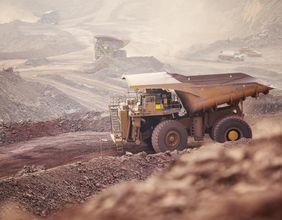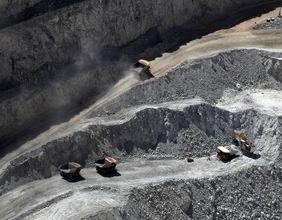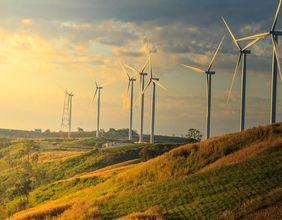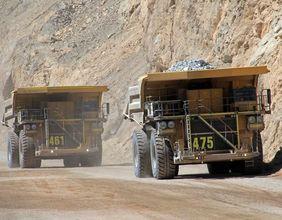Highlights:
- BOL is the three-character ISO 3166 country code for Bolivia.
- Bolivia is a landlocked country in South America with diverse cultures and ecosystems.
- The nation has a rich history and is known for its political reforms and indigenous movements.
Bolivia, represented by the three-character ISO 3166 country code "BOL," is a landlocked country located in the heart of South America. Despite its lack of direct access to the sea, Bolivia is a nation of immense cultural, geographical, and political significance. From its mountainous terrain and vast salt flats to its deep-rooted indigenous heritage and complex political history, Bolivia stands out as one of the most unique countries in the region. This article explores Bolivia’s identity, its vibrant culture, and its importance on the global stage.
Geographical Diversity
Bolivia’s geography is incredibly varied, offering a striking contrast between the towering Andes mountains and the vast Amazon Basin. The country is split into two primary regions: the Andean highlands and the lowland areas that extend into the Amazon rainforest.
- The Andes Mountains: Bolivia’s western region is dominated by the Andes, one of the longest mountain ranges in the world. The city of La Paz, the seat of government, is nestled at an altitude of 11,900 feet (3,650 meters), making it the highest capital city globally. The nearby Salar de Uyuni, the world’s largest salt flat, is another iconic feature of Bolivia’s Andean region.
- The Amazon Basin: To the east, Bolivia shares part of the Amazon Basin, a tropical rainforest that is home to an incredible diversity of plant and animal species. This area is essential for global ecological health and plays a critical role in climate regulation.
Cultural Heritage and Indigenous Identity
Bolivia is known for its strong indigenous heritage. It is one of the most culturally diverse countries in Latin America, with a significant portion of the population belonging to indigenous groups such as the Quechua, Aymara, and Guarani. These groups have contributed enormously to Bolivia's identity, with their languages, customs, and traditions forming a cornerstone of the nation's culture.
The country recognizes 36 official languages, reflecting the ethnic and linguistic diversity within its borders. Indigenous communities continue to be a driving force in the country’s political and cultural life, and their rights and representation have been central to Bolivia’s modern political developments.
A Complex Political History
Bolivia’s political history has been marked by both instability and progress. Over the years, Bolivia has experienced numerous coups, government shifts, and social movements. However, the election of Evo Morales in 2005 was a pivotal moment in the nation’s history. Morales, the first indigenous president of Bolivia, implemented a series of progressive reforms, including the nationalization of key industries, land redistribution, and the expansion of indigenous rights.
These reforms significantly altered Bolivia’s political and economic landscape, giving rise to both support and opposition. The country’s political environment remains dynamic, with ongoing debates about the balance between economic development, social welfare, and environmental protection.
Bolivia's Natural Resources and Economy
Bolivia is rich in natural resources, with vast deposits of minerals such as tin, lithium, and silver. The country also possesses significant reserves of natural gas and oil. Lithium, in particular, has garnered global attention due to its importance in the production of batteries for electric vehicles. Bolivia’s lithium reserves are among the largest in the world, which places the country in a unique position in the global energy transition.
However, Bolivia’s economy faces challenges, particularly related to poverty, inequality, and infrastructure development. Despite being one of South America’s poorer nations, Bolivia has seen steady economic growth in recent years, fueled in part by its natural resource sector.
Bolivia in the Global Context
Bolivia plays an active role in both regional and international affairs. It is a member of several international organizations, including the United Nations (UN), the Organization of American States (OAS), and the Union of South American Nations (UNASUR). Bolivia’s foreign policy has often centered around the promotion of indigenous rights, social justice, and environmental protection.
In addition, Bolivia's involvement in the global economy is growing, especially due to its role in the lithium market. As the world moves toward cleaner energy solutions, Bolivia’s lithium deposits are increasingly seen as vital to the development of electric vehicles and renewable energy technologies.
Environmental Concerns and Opportunities
Bolivia is home to some of the world’s most unique ecosystems, including the Uyuni salt flats, the Andean highlands, and the Amazon rainforest. However, the country faces significant environmental challenges, primarily stemming from deforestation, mining, and climate change.
The government has made efforts to balance economic development with environmental protection, but tensions remain between preserving Bolivia’s natural resources and exploiting them for economic growth. The country’s involvement in the global lithium market presents both opportunities and risks, particularly in terms of balancing economic benefits with the protection of indigenous lands and biodiversity.
Conclusion
Bolivia, denoted by the ISO 3166 code "BOL," is a nation of contrasts—its diverse landscapes, rich cultural heritage, and evolving political landscape make it one of South America’s most interesting countries. Bolivia’s history of indigenous empowerment, political reforms, and economic challenges showcases its dynamic role on the global stage. As the country continues to navigate the complexities of economic growth, social justice, and environmental conservation, Bolivia remains a key player in South America’s future. Its significance in the global lithium market only underscores its growing importance, making it a nation to watch in the coming years.






